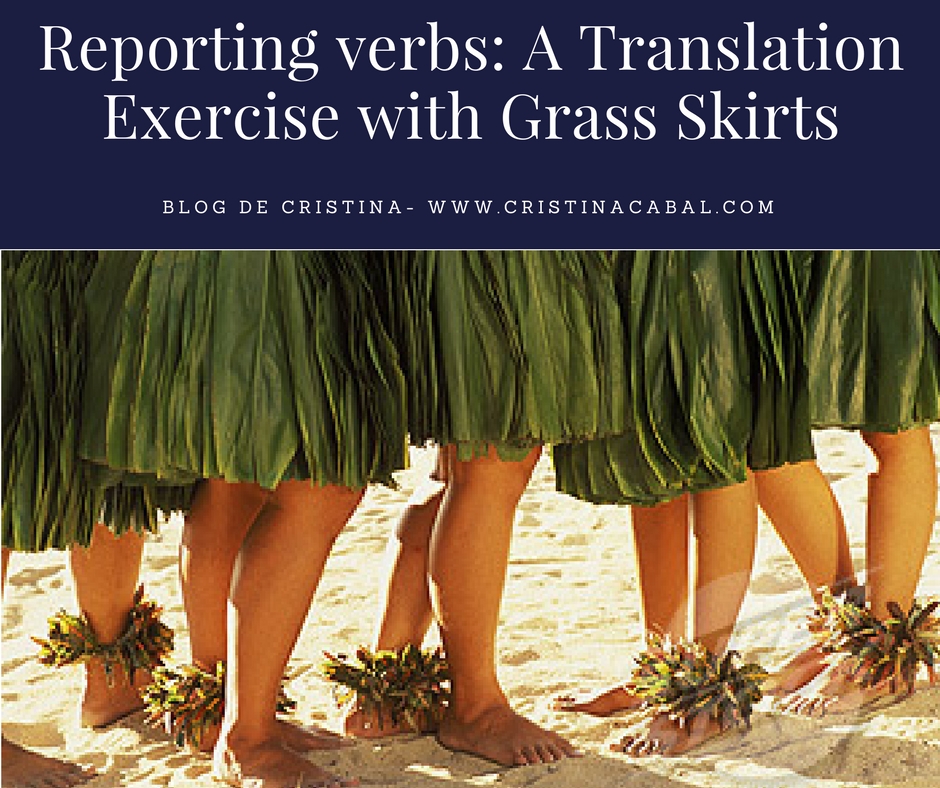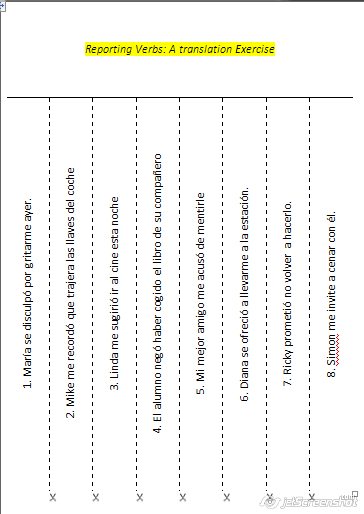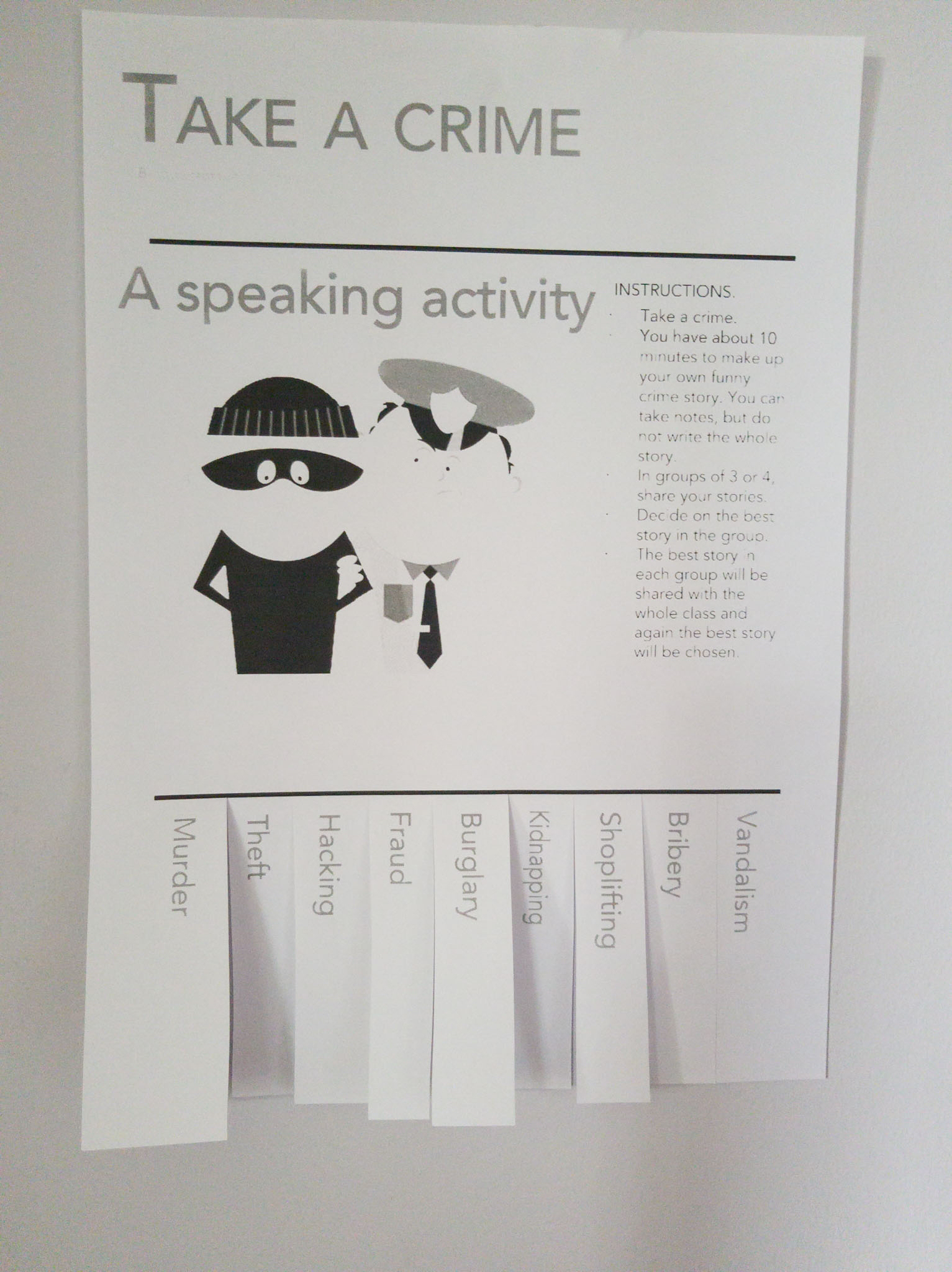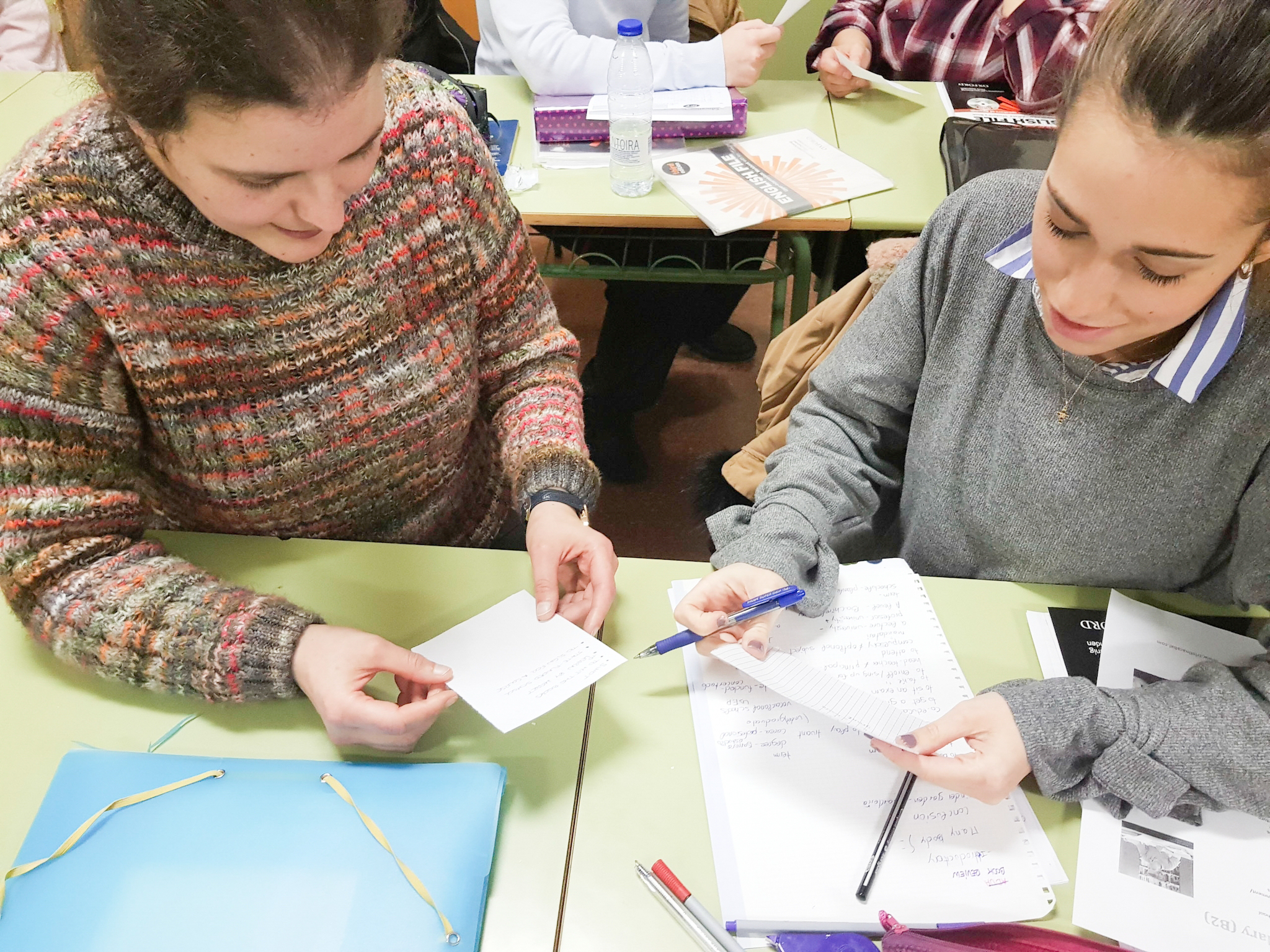Do you like translation exercises?
If you think they are boring, perhaps I might succeed in changing your mind once you read about this activity.
Writing is always on my mind (like Joe Manganiello 😀 ). It ‘s true that I should probably dedicate more time to writing tasks in class, but writing takes a lot of time and time is a luxury I cannot always afford. For this reason, I try to do small writing activities that take less time but have proven very effective.

If you have been reading my blog for some time you have probably guessed a thing or two about me: I am a huge fan of competitions and anything that brings fun and a relaxed atmosphere – and probably a little bit of noise- into the classroom.
I think the exercise I’m about to describe combines perfectly well the two above. I have used it to revise reported speech (indirect speech) and more specifically reporting verbs, but it can be easily adapted to any other point of grammar you need to revise.
In case you are wondering, below is a picture of the grass skirt I have used for this activity. You can also call them tearable sentences, but I like grass skirts better. You can make your own template o download the one Tekhnologic very kindly offers on his website. I have used his.

The activity
Before the class: Decide on 8 sentences using a variety of reporting verbs you’d like your students to translate. You can use Tekhnologic’s template or create your own. Write the sentences in the spaces provided. Print as many copies as you need and cut along the dotted lines. Each group of three or four students will be assigned a copy. A good idea would be to use a different coloured paper for each group, but this is entirely optional. Put them on the walls of the class.
Now, you are ready to start.
Procedure:
Ask students to work in groups of three or four. Draw students’ attention to the walls of the class and assign each group a poster with the 8 sentences.
Tell students that the aim of the game would be to translate all the sentences on their assigned poster on the wall. To do so, they must nominate a runner who is the one who must run to the wall, tear off the sentence, run back to his group and then together translate the sentence.
Once it’s done, the runner must go to the teacher and show him their translated sentence. If it’s correct, the runner can tear off the second sentence. If it’s incorrect, he must return to his group and correct the mistake(s). The teacher can help a bit by underlining where the mistake is. Only if the teacher has marked the sentence with a tick, it is considered correct.
Rules.
- The runner cannot tear off a new sentence until the previous one has been shown to the teacher and marked with a tick.
- The runner cannot correct the sentence at the teacher’s desk. He must return to his group and there, correct the sentence.
- Groups can only tear off sentences from their assigned posters.
- The first group to have a tick in all 8 sentences is the winner.
Follow-up: Whole class. Read out the sentences from the poster and ask students to, orally, translate them. Focus on any common problems you might have noticed.
Give runners a round of well-deserved applause and maybe something to drink 😆







